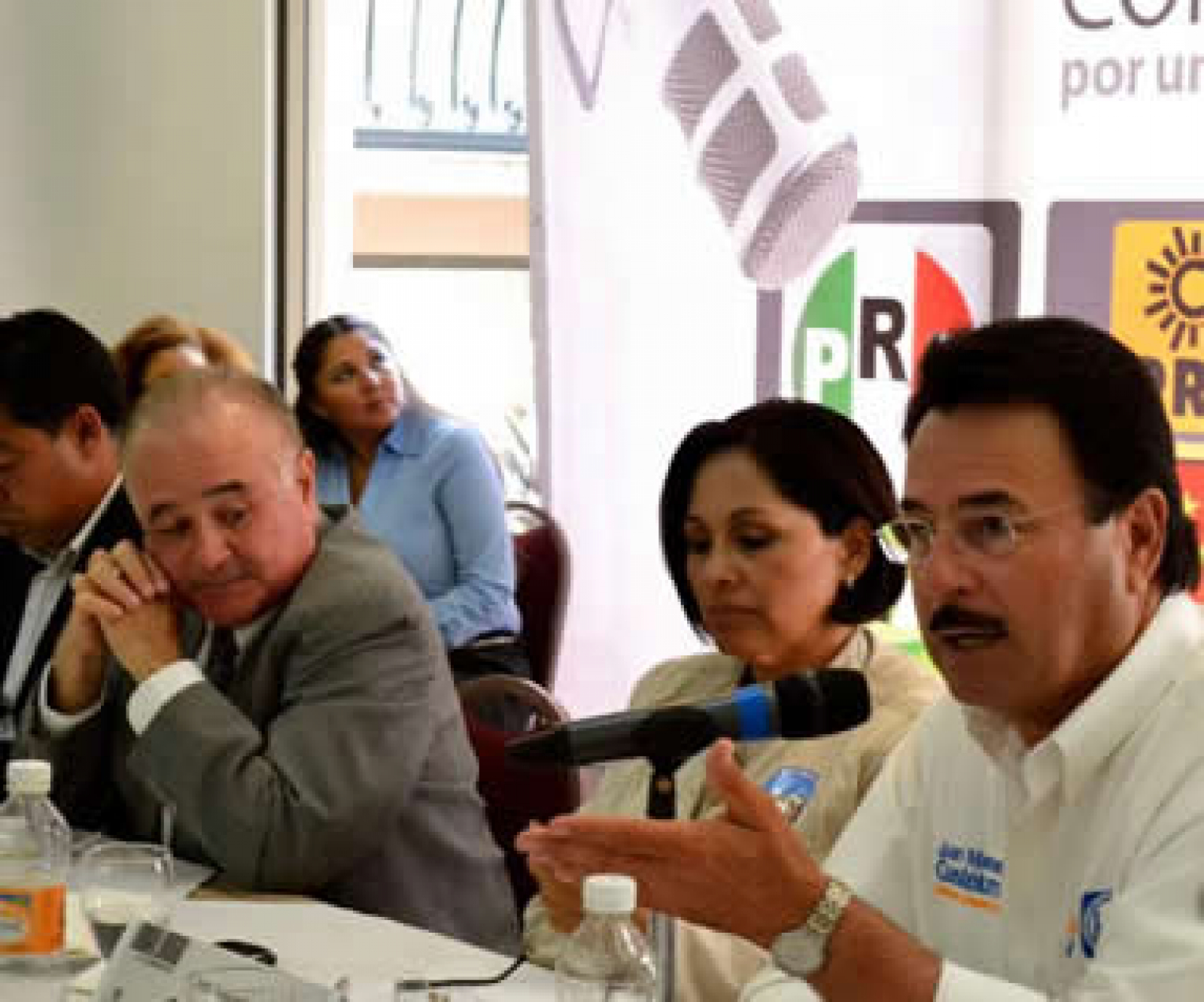
SHARE
In some of Mexico’s states most affected by violence, voters are getting a rare chance to put questions about citizen security to candidates seeking their support in the country’s July 1 congressional elections.
In a country that has been plagued by organized crime and violence, safety issues continue to be a top priority for voters. A poll from September 2011 found that 55 percent of Mexicans want the government to put a high priority on strengthening public security.
Historically, citizens have not had the chance during campaign periods to interact with candidates about policy issues, such as citizen security, that have become increasingly important to them. In the midst of continuous and widespread violence by drug cartels, elected officials have been unable to respond with safer living conditions, and independent civil society organizations have been typically left out of the political conversation.
To give citizens an opportunity to air these concerns, NDI and its partners – including local civic partners Deutera (Juárez Citizens for Peace), the Juarez Security Table (Mesa de Seguridad) and the Citizen Coalition for Public Security in Tijuana– hosted eight dialogues in Tijuana, Baja California and Ciudad Juarez, Chihuahua that brought together voters and candidates for the Senate and Chamber of Deputies from all of the registered political parties and electoral coalitions.
The candidates answered up to 25 questions about security and the justice system during 90-minute roundtable sessions, where they sat with leaders from participating local civic organizations in front of audiences of as many as 75 citizens.
In advance of the meetings, voters could use websites set up in Baja California» and Chihuahua» to pose and vote for questions that candidates would be required to address. Those chosen focused on how more funding could be directed to citizen security, how candidates proposed to improve coordination between federal and local police, and how they would improve Mexico’s penitentiary system.
The dialogues promote a culture of transparency,” said Heberto Peterson of Universidad Iberoamericana, a co-sponsor of the initiative. “They also help candidates -- particularly once elected -- see civic activists as collaborators and not just as votes. They realize that citizens are engaged, monitoring their performance, and will be evaluating their use of public funds. We hope that these dialogues will motivate them to legislate for concrete reforms to improve the quality of life of all Mexicans."
After the election, the websites will continue to serve as an important source of public information, with public material on citizen security, justice reform and video records of each citizen-candidate dialogue. By keeping a record of candidates’ promises, the local partners hope the sites will help keep office holders accountable and give citizens an accessible channel of communication with government leaders. NDI’s partners plan to provide advocacy training to educate citizens on how to continue to keep an open dialogue between government and the public about important policy issues.
"As a result of the dialogues, the candidates realized the importance of making concrete proposals on citizen security and justice reform,” said Montserrat Galindo of the AIDS Healthcare Foundation, which helped sponsor the program. “The public was very interested in having access to these proposals because the media… often ignores congressional candidates. At the end of the day, these dialogues allowed voters to get to know who the candidates are and what they propose."
Related:
- Tijuana civic groups use opinion research to strengthen police reform proposal»
- Mexican Civic Groups Bring Public Security Concerns to Politicians»
- NDI hosts democracy support roundtable with emerging powers»
Published June 28, 2012


